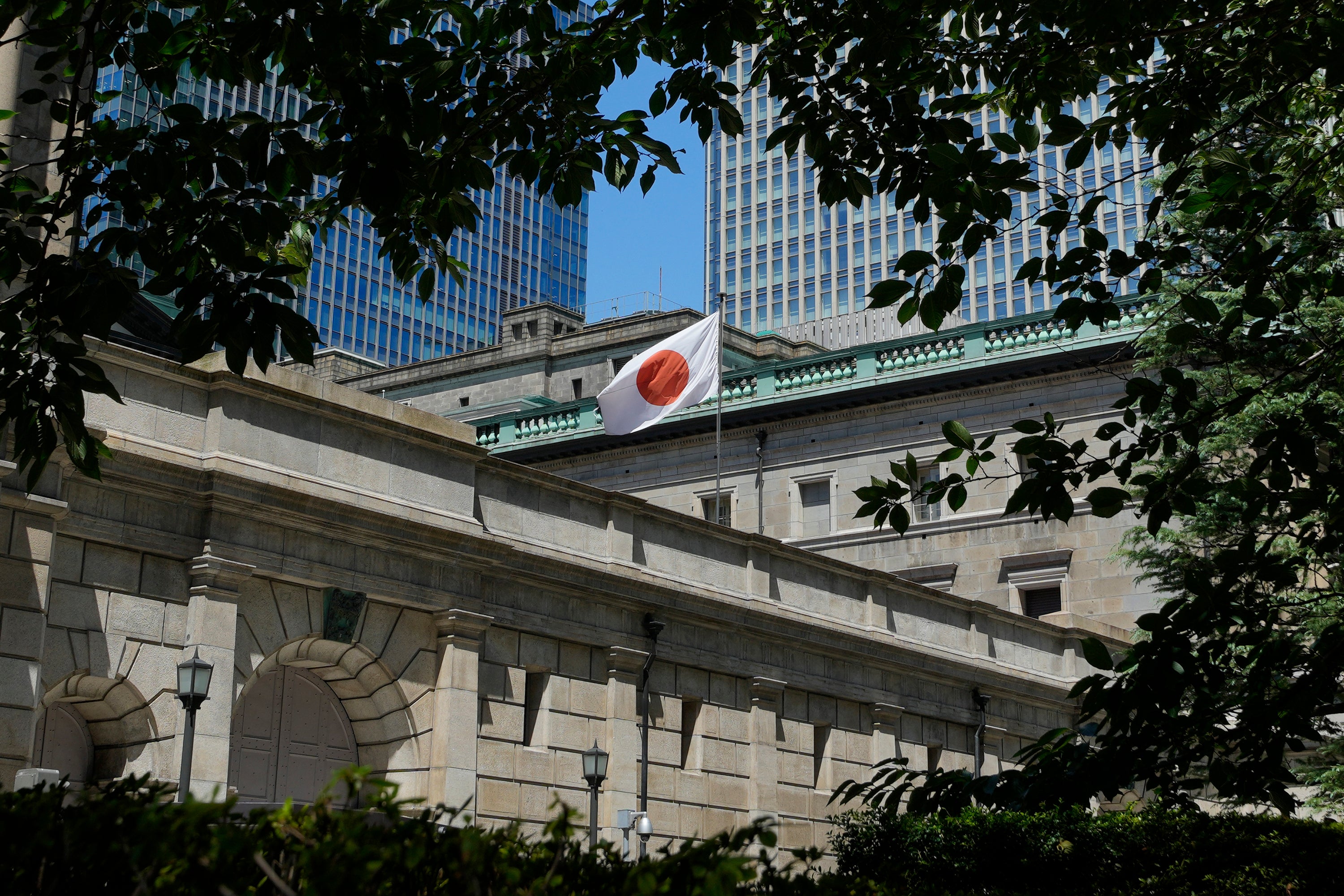Japan's central bank keeps its negative interest rate unchanged, says it's watching wage trends
The Bank of Japan has kept its longstanding easy credit policies unchanged, saying it will watch price and wage trends before raising its negative benchmark interest rate

Your support helps us to tell the story
From reproductive rights to climate change to Big Tech, The Independent is on the ground when the story is developing. Whether it's investigating the financials of Elon Musk's pro-Trump PAC or producing our latest documentary, 'The A Word', which shines a light on the American women fighting for reproductive rights, we know how important it is to parse out the facts from the messaging.
At such a critical moment in US history, we need reporters on the ground. Your donation allows us to keep sending journalists to speak to both sides of the story.
The Independent is trusted by Americans across the entire political spectrum. And unlike many other quality news outlets, we choose not to lock Americans out of our reporting and analysis with paywalls. We believe quality journalism should be available to everyone, paid for by those who can afford it.
Your support makes all the difference.The Bank of Japan kept its longstanding easy credit policy unchanged on Tuesday, saying it will watch price and wage trends before raising its negative benchmark interest rate.
The BOJ policy decision was widely expected. But investors and analysts believe the central bank is tip-toeing toward a shift due to price increases that have left inflation above its 2% target.
The U.S. dollar gained against the Japanese yen and stock prices surged after Tuesday’s decision.
The benchmark rate of negative 0.1% is meant to encourage banks to lend more and businesses and consumers to borrow more to spur the economy, the world's third-largest. The central bank also has purchased trillions of dollars worth of government bonds and other assets as part of its strategy of injecting more cash to spur growth as the Japanese population shrinks and grows older.
Inflation has risen in Japan but at a much slower pace than in the U.S. and other major economies, most recently at about 3%. At the same time, the U.S. dollar has risen against the Japanese yen as rates were raised to counter inflation that peaked at 9.1% in the U.S. That has undercut the purchasing power of the yen, raising costs for energy and other commodities.
BOJ Gov. Kazuo Ueda has remained cautious about raising rates, saying that wage increases have lagged behind rising prices and that the target level of inflation may not be sustained.
The central bank's policy statement said that housing investment remained weak and government spending was flat.
“With extremely high uncertainties surrounding economies and financial markets at home and abroad, the bank will patiently continue with monetary easing,” the BOJ said in a statement.
The central bank is reviewing its strategy, but “will not rush to exit” its current stance of “quantitative easing,” Oxford Economics said in a research note. “The exit will be delicate, requiring many years and comprehensive policy measures in conjunction with the government to ensure a smooth and stable process,” it said.